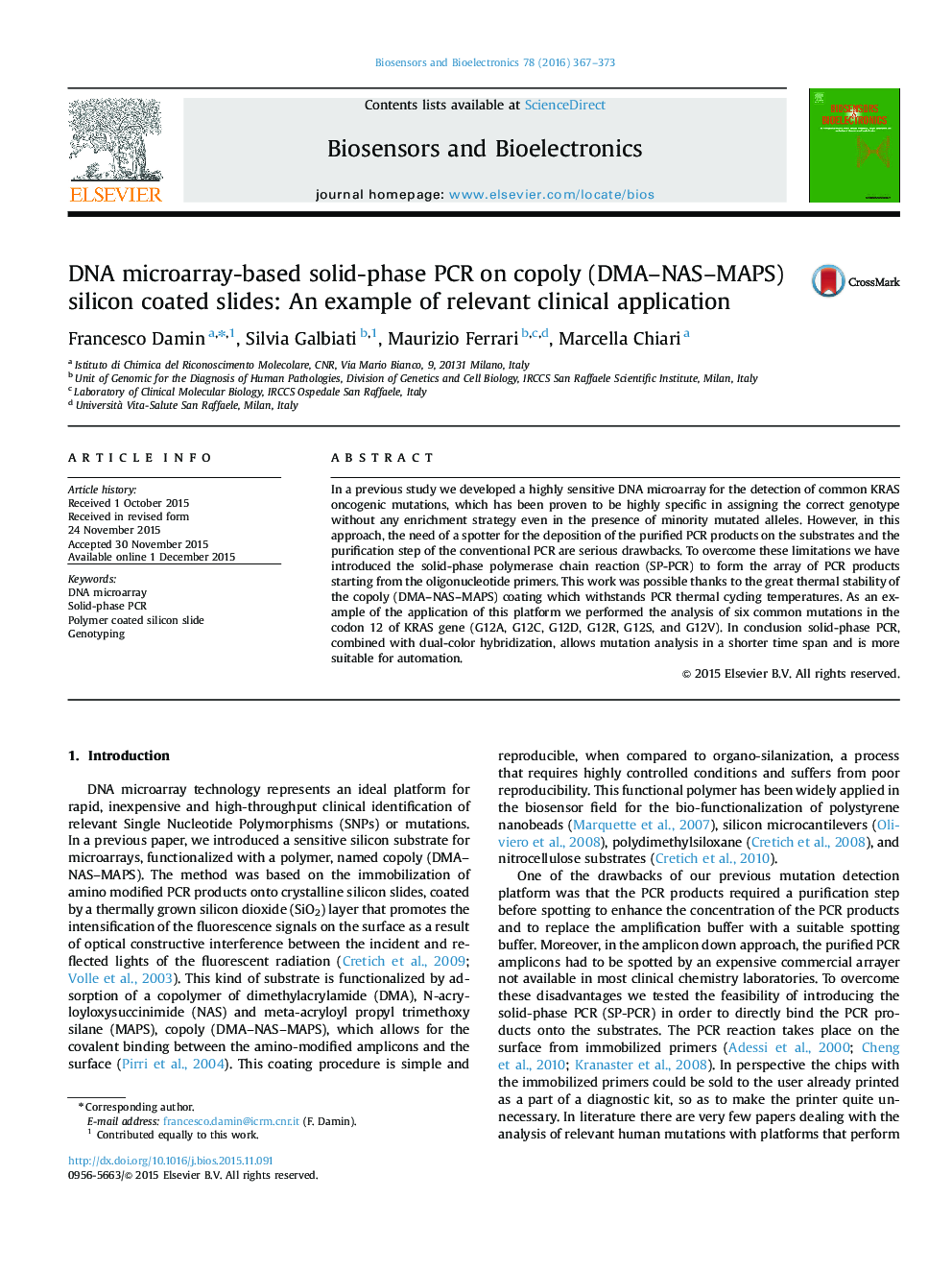| Article ID | Journal | Published Year | Pages | File Type |
|---|---|---|---|---|
| 7231030 | Biosensors and Bioelectronics | 2016 | 7 Pages |
Abstract
In a previous study we developed a highly sensitive DNA microarray for the detection of common KRAS oncogenic mutations, which has been proven to be highly specific in assigning the correct genotype without any enrichment strategy even in the presence of minority mutated alleles. However, in this approach, the need of a spotter for the deposition of the purified PCR products on the substrates and the purification step of the conventional PCR are serious drawbacks. To overcome these limitations we have introduced the solid-phase polymerase chain reaction (SP-PCR) to form the array of PCR products starting from the oligonucleotide primers. This work was possible thanks to the great thermal stability of the copoly (DMA-NAS-MAPS) coating which withstands PCR thermal cycling temperatures. As an example of the application of this platform we performed the analysis of six common mutations in the codon 12 of KRAS gene (G12A, G12C, G12D, G12R, G12S, and G12V). In conclusion solid-phase PCR, combined with dual-color hybridization, allows mutation analysis in a shorter time span and is more suitable for automation.
Keywords
Related Topics
Physical Sciences and Engineering
Chemistry
Analytical Chemistry
Authors
Francesco Damin, Silvia Galbiati, Maurizio Ferrari, Marcella Chiari,
